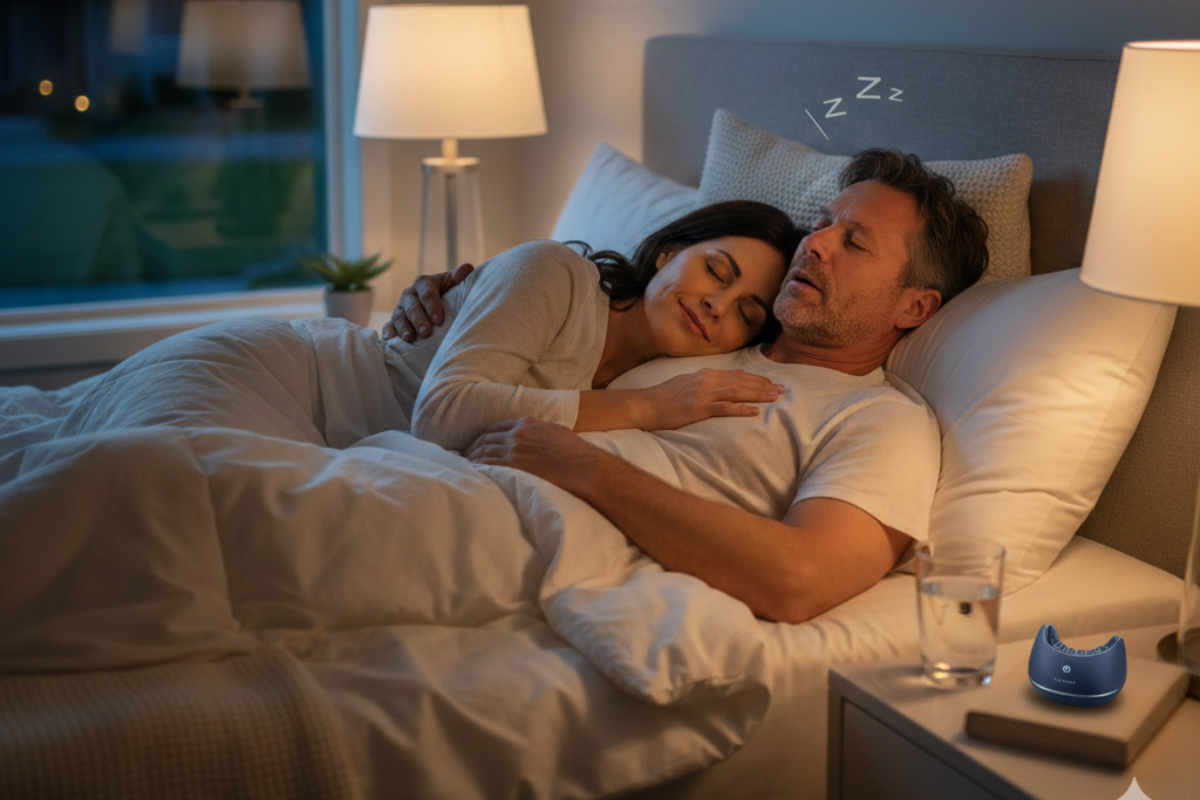Free Shipping - On Orders Over $99 (USA, Canada, UK, & AU)

What is the Strongest Natural Sedative?
August 29, 2021 3 min read
Insomnia, a problem seen in at least 10-30% of the population, is regularly treated with hypnotics, better known as sleeping pills. But these come with quite a few side effects — and they’re intended for short-term use only!
For all these and other reasons, a growing number of people are turning to natural alternatives.
These products, which are often referred to as natural sedatives, are herbs and other supplements that can help boost sleep efficiency with fewer risks and milder side effects. But they’re not created equal when it comes to efficiency and potency.
What Are Natural Sedatives?
Although there’s no standard definition for “natural sedatives,” the term usually refers to herbs and other supplements that reduce anxiety and subsequently improve sleep.
As you’re probably aware, most cases of insomnia are linked to hyperarousal, i.e. elevated stress. Calming the nervous system is then the first step to treating stress-induced insomnia. Most natural sedatives were found to offer exactly that — calm and stress relief. Examples of natural sedatives that work this way include:
There are also sleep aids that don’t cause sedation but directly influence the body’s internal clock. Two such natural sleep aids are exogenous melatonin and glycine.
An important thing to keep in mind is that the term “natural” is a bit of a misnomer when applied to these products. Many times, they are man-made, while others are combined with synthetic fillers.
What Is the Strongest Natural Sedative?
Like most natural products, natural sedatives are less potent than their prescription counterparts. That’s why they’re most effective for milder cases of insomnia and when used in combination with good sleep hygiene.
Still, you probably want to get the best bang for your buck if you’re thinking about going down the natural route towards better sleep. In that case, you’re interested in which one has the strongest effect.
Unfortunately, there’s not enough research looking into natural sedatives, which is why we don’t yet know which one is the strongest. Case in point: a systematic review of the evidence published in 2015 found there’s was no difference in terms of efficiency between different herbal sedatives.
But where efficiency is concerned, the most studied natural sedatives showing the greatest efficiency are valerian and lavender. And according to a recent pilot study in Complementary Therapies in Medicine, a combination of herbal extracts, vitamin B6, and melatonin could increase sleep quality significantly in people with mild to moderate insomnia. And the same clinical efficiency was found with glycine, a non-essential amino acid found in meat, dairy, and legumes.
So, it could be said that the strongest sleep induction will come from the most effective natural remedies mentioned above.
A Word of Caution
If you decide to go for natural sedatives, keep in mind that natural does not equate to safe.
Taken in excess, these products can damage the liver just like prescription medicine. Some may also interact with drugs, which is why you must speak to your doctor before taking them alongside prescription medication.
Another thing to note is that your sleep problems may have to do with issues other than stress. Habitual snoring and sleep apnea, for example, can disrupt the quality of sleep and lead to daytime tiredness, low mood, and poor functioning. In that case, you would need to look into snoring solutions like developing healthier habits, weight loss, sleeping on your side, and snoring mouthpieces.
To know what exactly is behind your insomnia or disrupted sleep, consulting a specialist may sometimes be necessary.
References:
Bhaskar S, Hemavathy D, Prasad S. Prevalence of chronic insomnia in adult patients and its correlation with medical comorbidities. J Family Med Prim Care. 2016;5(4):780-784. doi:10.4103/2249-4863.201153
Romero K, Goparaju B, Russo K, Westover MB, Bianchi MT. Alternative remedies for insomnia: a proposed method for personalized therapeutic trials. Nat Sci Sleep. 2017;9:97-108. Published 2017 Mar 17. doi:10.2147/NSS.S128095
Lewith GT, Godfrey AD, Prescott P. A single-blinded, randomized pilot study evaluating the aroma of Lavandula augustifolia as a treatment for mild insomnia. J Altern Complement Med. 2005;11(4):631-637. doi:10.1089/acm.2005.11.631
Leach MJ, Page AT. Herbal medicine for insomnia: A systematic review and meta-analysis. Sleep Med Rev. 2015;24:1-12. doi:10.1016/j.smrv.2014.12.003
Guadagna S, Barattini DF, Rosu S, Ferini-Strambi L. Plant Extracts for Sleep Disturbances: A Systematic Review. Evid Based Complement Alternat Med. 2020;2020:3792390. Published 2020 Apr 21. doi:10.1155/2020/3792390
Lemoine P, Bablon JC, Da Silva C. A combination of melatonin, vitamin B6 and medicinal plants in the treatment of mild-to-moderate insomnia: A prospective pilot study. Complement Ther Med. 2019;45:104-108. doi:10.1016/j.ctim.2019.05.024
Kawai N, Sakai N, Okuro M, et al. The sleep-promoting and hypothermic effects of glycine are mediated by NMDA receptors in the suprachiasmatic nucleus. Neuropsychopharmacology. 2015;40(6):1405-1416. doi:10.1038/npp.2014.326
Also in Blog

Healthy Sleep Goals For 2026
December 22, 2025 6 min read

💨 Are Your Nighttime Breathing Issues Robbing You of Your Health and Your Energy?
December 12, 2025 3 min read
Breathing issues during sleep, collectively known as sleep-disordered breathing, are a major public health concern.

Is Your Snoring a Sign of Something More Serious? Unpacking the Science of Sleep
December 05, 2025 3 min read
When you snore, what's actually happening?
Join our Insiders Club
Every week you will receive specials, discounts, and giveaways.
Categories
- Better Sleep
- depression
- Fitness
- funny animal
- Global Citizenship
- health
- Mental Health
- mouthpiece
- nutrition
- pillow
- Productivity
- relationships
- sleep
- sleep apnea
- sleep deprivation
- Sleep Tech
- snoring
- snoring humor
- snoring jokes
- snoring sounds
- stop snoring
- StopSnoringStartLiving
- technology
- Tongue displacement
- travel
- video
- Young Adult

